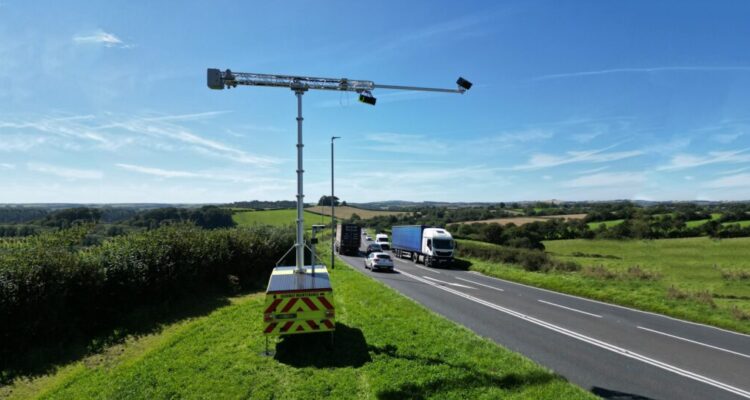In a groundbreaking initiative to enhance road safety, Devon and Cornwall have become the testing ground for an innovative AI-driven camera system designed to detect drivers impaired by alcohol or drugs. This state-of-the-art technology aims to proactively identify and mitigate dangerous driving behaviours, thereby reducing the incidence of road traffic accidents in the region.
Developed by the Australian firm Acusensus, the AI camera system employs advanced algorithms to monitor and analyse driver behaviour in real-time. The system is adept at identifying erratic driving patterns, such as swerving or inconsistent speeds, which are indicative of impairment due to alcohol or drugs. Upon detection of such behaviours, the system alerts nearby police units, enabling them to intercept the vehicle and conduct further assessments, including roadside impairment tests.
One of the notable features of this AI camera system is its mobility. The equipment can be swiftly relocated to various high-risk areas across Devon and Cornwall, ensuring comprehensive coverage of the region’s extensive 14,000-mile road network. This flexibility allows law enforcement agencies to respond dynamically to emerging data and intelligence, optimising resource allocation and enhancing the effectiveness of road safety operations.
This initiative is a collaborative effort under the Vision Zero South West road safety partnership, which is committed to eliminating all fatalities and serious injuries on the roads. Superintendent Simon Jenkinson of Devon and Cornwall Police‘s roads policing team emphasised the importance of integrating emerging technologies into their strategy. He stated, “Embracing emerging technology such as these cameras is vital in that quest.”
The trial of this AI camera system commenced in December, aligning with other drink-driving campaigns during the festive season. By deploying the cameras during this period, authorities aim to assess the system’s effectiveness in real-world conditions and gather data to inform future deployments. The overarching goal is to deter impaired driving and reduce the number of people killed or seriously injured on the roads of Devon and Cornwall.
Geoff Collins, the UK general manager of Acusensus, expressed enthusiasm about the trial, stating, “We are delighted to be conducting the world’s first trials of this technology right here in Devon and Cornwall.” He highlighted the system’s potential to detect impairment before it leads to incidents that could have devastating consequences, thereby contributing significantly to road safety efforts.
The successful implementation of AI-driven detection systems represents a significant advancement in road safety technology. By enabling early detection of impaired drivers, these systems not only enhance the ability of law enforcement to prevent accidents but also serve as a deterrent to those considering driving under the influence. As the trial progresses, it is anticipated that the insights gained will pave the way for broader adoption of such technologies, both within the UK and internationally.
The introduction of AI cameras to detect drink and drug drivers in Devon and Cornwall marks a pivotal step in leveraging technology to improve road safety. Through the collaborative efforts of law enforcement agencies, technology providers, and road safety partnerships, this initiative aims to create safer roads and prevent the tragic consequences of impaired driving.
Mark Salisbury, Editor






